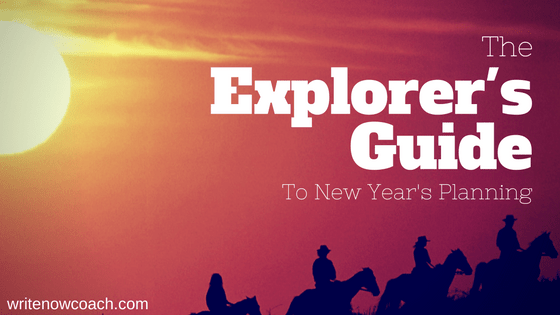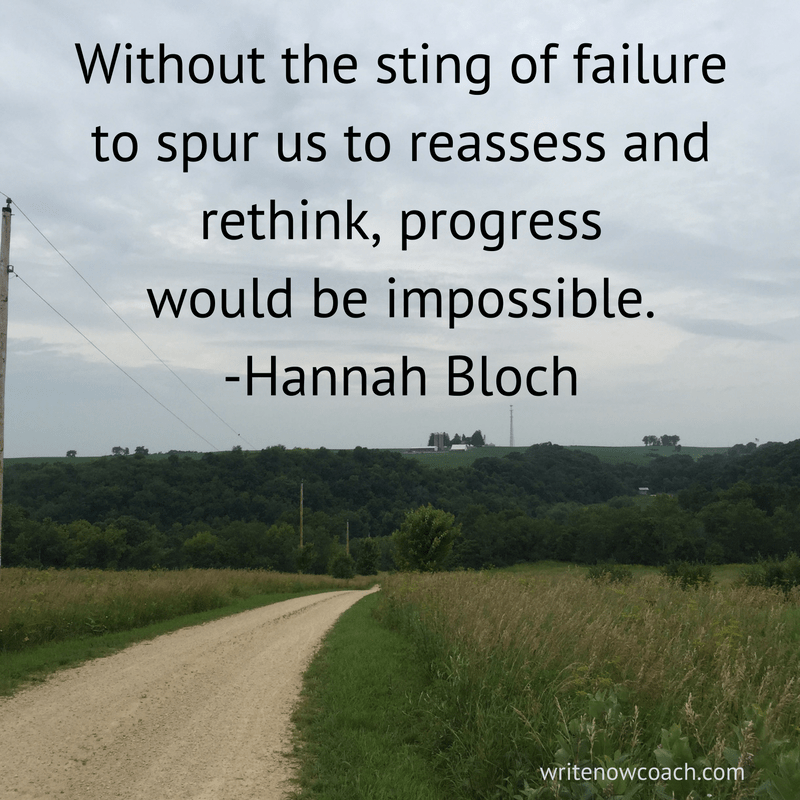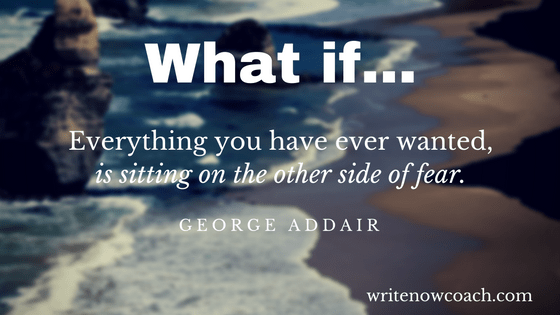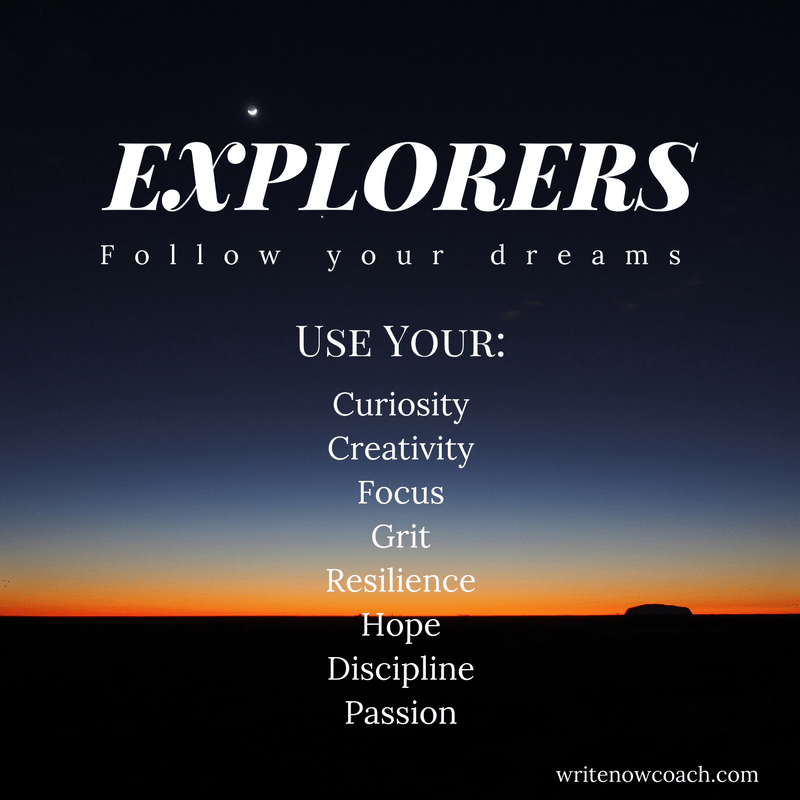The Explorer’s Guide to New Year Planning
December 27, 2016
Note From Rochelle
Dear Writers,
Greetings! I’m off this week, spending time with my family and gearing up for the New Year.
Don’t forget—if you’re interested in group coaching starting this February, you can sign up here.
And here’s a special gift for you: Everyone who signs up for group coaching before December 31st
gets a bonus individual coaching session (30 minutes) to be used anytime before June 2017.
Today’s post is dedicated to those of you who are feeling a bit “Bah Humbug” about New Year’s
Dreaming.
Happy Writing!
Rochelle,
The Write Now! Coach

The Explorer’s Guide to New Year Planning
By Rochelle Melander
At a recent holiday lunch, a friend and I talked about New Year’s goals. Turns out, we were both feeling sort of “been there, done that” about the whole thing. Being committed to visioning and planning, we’ve tried most everything: choosing themes, writing visions, setting a single big goal, and working on several tiny goals. But this year? We hadn’t done any dreaming or planning.
Perhaps you are experiencing a bit of the same ennui—feeling frustrated with the present and a bit hopeless about anything changing. You’ve set the goals and worked the programs. You’ve tried many interventions and feel like nothing has worked. Perhaps it’s time for a new model.
Enter: The Explorer. Think Marco Polo, Lewis and Clark, Amelia Earhart and Nellie Bly.
And you. If you live your life as an EXPLORER, here’s how you might assess the past and imagine the future. Ready? Let’s go!
Explore Failures and Regrets
When I get anxious about the present or future, I tend to grill my past, focusing on what I should have done. I examine the failures and every road not taken. I ask questions like: What if you’d done this? Why didn’t you do that? Then I should on myself: You should have done this. And the endless cycle of questions, shoulds, and regrets prevents us from producing creative work now.
But what if we examined the past with an explorer’s mindset?
Great explorers don’t always reach the top of the mountain or find the hidden treasure. Sometimes they get hurt, lost, or worse. How do explorers deal with regret or failure? In an article in National Geographic about failed explorers, Hannah Bloch said: “Failure—never sought, always dreaded, impossible to ignore—is the specter that hovers over every attempt at exploration. Yet without the sting of failure to spur us to reassess and rethink, progress would be impossible.”
So…failure and regret serve a purpose for the explorer. Let’s ditch the habit of beating up on ourselves. Instead, we’ll use the past to learn—and choose better adventures.

Try this:
Start by listing anything you regularly regret: what do you wish you had done, said, accomplished or written? These might surface as the questioning I mentioned above. Regrets can also show up as jealousy, anger or annoyance toward other people. If you felt offended by an author who posts about his or her success, it might be a sign that you haven’t been putting enough time into your writing.
Once you have a list of actions, accomplishments, or adventures you regret not doing, ask these questions:
+What do I think that action would have brought me? (For example, if you’re regretting not getting an additional degree, consider what benefits you feel you’ve missed out on. But don’t stop with the obvious. Yes, getting an additional degree might have brought you new work opportunities. But you might also be regretting it for other reasons like missing out on learning, community, security, or respect.)
+What do I need to pay attention to? What dreams can I rescue from this situation? What can I learn from this?
Imagine possibilities
Author and modern day explorer Mikael Strandberg says this about vision, “You need a vision, an idea that differs from most others. Few people are born with a vision. You create your own visions and ideas through intense, careful and thorough research by reading, studying and talking to people.”
Okay, explorers. Here’s how we’ll tackle the future!
+Begin with a dreaming session. Ask “what if” about every idea that surfaces—even if it sounds crazy—and see what comes up. You might have a list of statements like: What if I spent the next three months working on my novel? What if I applied for that MFA program? What if I moved to Spain to write? What if I took a class on copywriting? What if I wrote at coffee shops? What if I wrote up my process for marketing widgets? What if I started a business?
+Get out and search for ideas and opportunities that stir your sense of adventure. Wander through libraries, bookstores, and websites. Watch movies and listen to podcasts. Talk to people who have taken great adventures. Add anything that inspires you to your “what if” list.

Choose your adventure
Explore the ideas that resonate most with you. Interview people. Read books. Make plans. Pay attention to what feels right to you. Then choose your adventure.
And then? Figure out what you need to make this adventure happen—and then do it. Take on that adventure like an explorer. Go all in. As Strandberg said, “You have to put everything else on the side and just follow your heart and vision. … Don’t worry about what others think. In most cases, they’re just jealous of not having the guts to do what you do.”

A Final Note
If you need a partner in deciding which adventure to take or strategizing how to make it happen, I’m offering a special $95 rate for a one-hour New Year Strategy Session. You’ll receive:
+A welcome letter and assignment to complete before we meet.
+A one-hour consultation with me.
+A recording of our conversation.
If you’re interested in claiming one of the remaining spots I have available for this conversation, click here.








